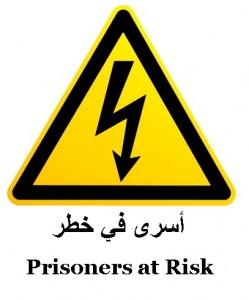
Ramallah, 7 February 2012 – Addameer expresses its utmost concern about the health of Khader Adnan, who remains steadfast on Day 52 of his hunger strike in protest of being held in administrative detention and refuses treatment until his release. Despite his rapidly deteriorating condition, an Israeli military judge issued a decision today confirming his administrative detention order for a period of four months.
In the court decision, Judge Dalya Kaufman claimed that after hearing the medical assessment of the Israeli Prison Service (IPS) physician, Khader’s medical condition seems “acceptable” and provides no grounds for shortening or canceling the administrative detention order. This claim was made regardless of the questionable nature of the IPS medical assessment, given that Khader has refused to allow Israeli hospital staff to carry out his medical examinations. The last medical examination that Khader received was on 29 January, when Physicians for Human Rights doctors examined him. The doctors stated that in the event of organ failure, his condition could become life-threatening.
During the confirmation hearing, the military judge also claimed that she ruled out alternatives to administrative detention due to Khader allegedly “hiding” from Israeli Occupying Forces (IOF), even though he was arrested from his own home. She further contradicted herself when noting that the secret file on which his administrative detention is based contains information that he is a high risk to Israeli security, while also admitting that this same material is not enough to bring actual charges against him. These contradictions reveal the highly arbitrary nature of Khader’s detention in addition to Israel’s violations of international humanitarian law, which permits limited use of administrative detention only in emergency situations, but does not allow for its use as punishment when there is not sufficient evidence for criminal procedures.
On 6 February, Addameer lawyer Samer Sam’an was able to visit Khader in Zif Medical Center in Safad. Mr. Sam’an stated afterwards that Khader continues to refuse ingesting salt and vitamins. He also noted that Khader remains conscious and aware of his surroundings. Though Khader has categorically refused to allow any medical examinations by Israeli hospital staff, Israeli authorities continue to transfer him between multiple hospitals within Israel, which has made visits from his lawyers increasingly difficult.
Immediately after being arrested on 17 December 2011, Khader began his hunger strike in protest of Israel’s consistent violations of human rights, including its policy of arbitrary detention, torture, inhuman and degrading treatment during and following his arrest and the violation of his right to be promptly informed of the charges against him. As punishment for his hunger strike, the IOF placed Khader in solitary confinement after his fourth day under interrogation and stated that they would ban him from family visits for the following three months. With no other means to protest these injustices, Khader responded by saying, “My dignity is more precious than food.” On 8 January 2012, Khader was issued a four-month administrative detention order. After being postponed several times, a court hearing took place on 1 February, during which Khader described the ill-treatment he experienced at the hands of the IOF.
A group of Palestinian prisoners began a hunger strike in support of Khader on 2 February. Currently there are prisoners on hunger strike in Ofer, Megiddo and Ramon prisons. Khader is now the longest Palestinian hunger striker in history. He is one of 310 administrative detainees held in Israeli prisons and the third case in Addameer’s Prisoners at Risk campaign.
Addameer holds the Occupation accountable for Khader’s deteriorating health and urges the High Contracting Parties to the Fourth Geneva Convention to put immediate pressure on Israel to abide by international humanitarian and human rights law in regards to arrest and detention of Palestinians. Addameer further appeals to the International Committee of the Red Cross to play its role in bringing attention to the multitude of violations committed by Israeli authorities. If Khader remains in administrative detention, it is surely a major threat to his life; to ensure his release, local and international coalitions must work rapidly to build a movement in his support.